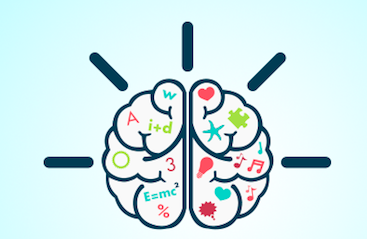As education is often in the forefront of many parents’ minds, some parents have thoughts about their children’s current levels of achievement, learning style, thought processing abilities and more. Therefore, I invited my colleague, Jessica Moore, (School Psychology Intern at the ABLE Clinic) to share some information about the value of psycho-educational assessments, which I also think of as an in-depth, inside-look at one’s brain!
What Is A Psychoeducational Assessment?
A psychoeducational assessment, or “psych-ed” is an assessment that examines a child’s cognitive, academic, emotional and behavioral functioning. It is an excellent way to get an informative and in-depth look at all areas of your children’s functioning, which in turn, helps you, as a parent, understand your children, their learning style, as well as how to help them best, both inside and outside the classroom.
Why Do A Psychoeducational Assessment?
An assessment will give you, as well as your child’s teachers, different ways to help support your child’s learning and development at home and school. It can provide the information necessary to help your child qualify for additional school services like learning support or challenge programs. It can help tailor your intervention techniques to your child’s specific needs, it order to effectively help them reach their full potential. A thorough assessment can be compared to putting on a different pair of glasses and seeing your child with a new lens. It helps you understand your child better, and often helps you know where they are coming from.
What Are Some Behavioral Signs Indicating A Child Might Benefit from A Psychoeducational Assessment?
- Anxiety or school refusal: Children who face daily frustrations, struggles and embarrassment at school tend to worry excessively, and their difficulties often present themselves as anxiety-like symptoms. Children who are having trouble learning are often keenly aware that they are learning differently than their peers, and developmentally, they often haven’t developed coping skills or means to deal with the stress this causes.
- Learned Helplessness or passivity with schoolwork: Students who experience consistent failure and difficulty despite continued effort, often give up and put limited effort into school work, as a protective mechanism for their self-esteem.
- Misbehaviour: Children with learning difficulties often engage in disruptive behaviours, and can be aggressive at times to avoid the task at hand
- Boredom: Children who find some areas of school easy, may need enrichment.
What Areas Are Tested in An Assessment?
The specific areas that are assessed often depend on your referral question (the question you wish to answer by having an assessment). The areas below are usually a part of a general psychoeducational assessment:
- Thinking and reasoning skills: Verbal and non verbal reasoning skills
- Processing skills: Processing speed, memory skills, executive functioning and attention skills
- Academic achievement: Are your child’s educational skills at grade level?
- Emotional adjustment: Does your child present with any internalizing problems (e.g., depression, anxiety)?
- Adaptive skills: Does your child have age appropriate independent living skills?
- Behaviour: Does your child present with any challenging behaviours?
What Questions Can A Psychoeducational Assessment Answer?
- Is my child gifted? Does he/she need enrichment?
- Does my child have a learning disability?
- Does my child have ADHD?
- How can I help my child learn best at school?
- Does my child quality for an IEP (Individual Education Plan) or extra learning assistance support at school?
- What is my child’s learning style? More of a visual learner or auditory learner? What are his/her strengths and weaknesses?
What Happens During an Assessment?
First, the psychologist will meet with the parents, to have an in depth background interview in order to get a clear picture of the child, their struggles, their talents, and what makes them who they are! It is always helpful to bring old assessment reports, report cards or any other information you think is informative (e.g., a letter from a teacher, a drawing etc.)
Next, the psychologist will meet with the child over approximately 4-5 hours. Typically, these are broken down into hour-long sessions, spanning over a few weeks. During the sessions, several tests are administered measuring cognitive skills, academic achievement and any thing else of interest (such as attention skills, emotional adjustment concerns). The activities are broken down into small chunks, and are usually quite fun for the child.
After the testing is complete, the psychologist will meet with the parents and go through the results, the recommendations and any diagnoses that may be appropriate. A few weeks after the feedback meeting, you receive a comprehensive report that summarizes all of the testing results, and recommendations.
What Do I Tell My Child About the Assessment?
It is always best to be honest with your child, but frame the assessment in a fun and exciting way. For younger students, I always call myself a “brain detective,” and explain that we are doing puzzles and answering questions together, to find out what your brain likes to do, and what it has trouble with, and that we are using all of these “clues” your brain gives us, to help make school the best place possible. For older students, I always try to get their insight as to what their challenges are at school, and frame the assessment as a way to understand their learning style and help them achieve their best.
Thank you Jessica for demystifying “Psych-Eds”. As a Clinical Counsellor, I have read hundreds of Psychoeducational Assessments, and always find them incredibly valuable. The assessments greatly benefit myself, the school, and parents in having a greater understanding of a child’s strengths and difficulties, and in creating an individualized support plan. It is also helpful for the child to have a greater understanding of his/her brain. The testing is standardized which means it is very reliable. Having a graduate student, such as Jessica Moore, assess your child is a less expensive option. Graduate students are all supervised by a psychologist, and in cases such as Jessica, this is her second year conducting Psychoeducational Assessments, thus she has a lot of experience. A graduate student’s report, supervised by a psychologist, is considered completely valid, accepted by school districts, and covered by extended health plans up to the amount determined by individual extended health companies.
I hope your child’s transition back to school goes well! If your child is having some anxiety about returning to school, you may be interested in reading my previous articles: How to Ease Your Child’s Back-to-School Anxiety and Preparing for “The Night Before School Starts” Anxiety
Warmly,
PS Like what you’re reading? You may wish to sign-up for my weekly blog sharing information about parenting, psychology and personal growth. To do so, enter your confidential e-mail in the box at the bottom of this page and you will then receive a confirmation e-mail. Click to confirm and welcome to this supportive parenting community where short, informative articles will be sent directly to your in-box once/week! I look forward to connecting with you.
*If this article inspires you, please consider forwarding to friends and family or sharing through Facebook, Twitter (my Twitter handle is @child_family) or Email. Thank you for helping me get the word out!
Want to Connect?
Subscribe now to receive free weekly parenting tips and inspiration.









